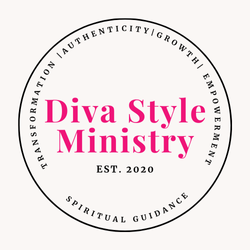While anger is a natural emotion, and the American Psychological Association asserts in a 2003 article that it is beneficial in healing from most traumas, feeling angry to a certain degree can negatively impact our lives.
It can damage our relationships, impede our decision-making, lead to various psychological issues, and cause a reduced quality of life. Some steps can help people come to terms with and heal the anger in more healthy ways.
Recognizing Anger
The first step to healing anger is recognizing the anger. When full-blown, anger can be pretty difficult to halt; however, as with all things, detecting the signs of anger early is key to stopping a severe incident.
It gives you time to halt the anger in its tracks and direct your thought to a calm and more constructive place.
Anger brings about a string of physical reactions in your body. These include:
- Faster Breathing
- A Rapid Heartbeat
- Restlessness
- Tension In Your Body
- Pacing Or Tapping Of The Feet
- Clenched Jaws Or Fists
- Trembling
- Sweating
These physical bodily changes are early indicators of anger and recognizing them early plays a big part in halting harmful physical responses.
Using Exercise as a Coping Method
Research cited in the May 2019 edition of ACTA Scientific Medical Sciences mini-review has discovered that exercise and other physical activities help decrease stress, a leading cause of anger.
Going for a run, a brisk walk, or engaging in other physical activities can help keep your anger under check, especially if you feel it escalating.
Closely related to exercise is taking a time out or a break when you feel stressed or placed under pressure that can trigger anger. Five to ten minutes of quiet time does wonders in making you feel better and ready for anything without getting angry.
Most psychologists recommend humor; however, quiet time still does wonders at achieving the same results.
Employing Self-Care Time as a Coping Method
Unlike exercising or taking a time-out, self-care time releases you from any subconscious blame held as a result of the anger situation.
While most people feel angry at situations or conflicts, we can subconsciously blame ourselves for letting those situations happen in the first place.
Maybe you played a role in the conflict, you ignored apparent red flags, or you didn’t step away from the situation earlier. Blaming yourself would keep you from truly healing.
Self-care time allows you to stop blaming yourself and release the negative energy, as forgiving yourself is the first proper step to healing anger.
Practicing Relaxation as a Coping Method
There are various relaxation skills proven to help heal anger, and you should put these skills to work whenever you feel anger rising.
These skills include:
- Deep-Breathing Exercises
- Imagining A Relaxing Scene
- Repeating A Calming PhraseÂ
- Listening To Music
- Writing In A Journal
- Doing Yoga
- Etc.
These skills are many, and what works for someone else might not be as effective for you. Try out a few and pick the one that works best for you.
The Most Crucial Step – The Act of Forgiveness
The most crucial step in healing from anger is forgiving the offending individual. While all the steps listed above will help you to handle and heal anger, their effects are temporary, and only forgiveness completely heals anger.
Contrary to popular thoughts, psychologists have found that forgiveness is a mindset and a new way of life rather than a one-off thing.
Forgiveness should be practiced every day.
We should let go of past hurts and feelings of having revenge for those actions.
While it can be incredibly difficult to practice forgiveness, it is the ultimate step to healing anger and living healthy lives.
There are various exercises thought to help with forgiving and letting go of past pains and hurts. The most popular is Tonglen, practiced in Tibetan Buddhism, which promotes deep compassion by letting go of past hurt and pain.
Affirmations to Help Heal Your Anger
I release my angry feelings.
It is okay to feel strong emotions.
I turn my anger into strength.
I am lucky to experience my emotions.
I turn negative emotions into positive ones.
I am in control of how I feel.
Anger is a temporary emotion.
I do not let my angry feelings consume me.
I am not in control of what other people do.
Being a calm person comes naturally to me.
I visualize myself being calm and relaxed.





